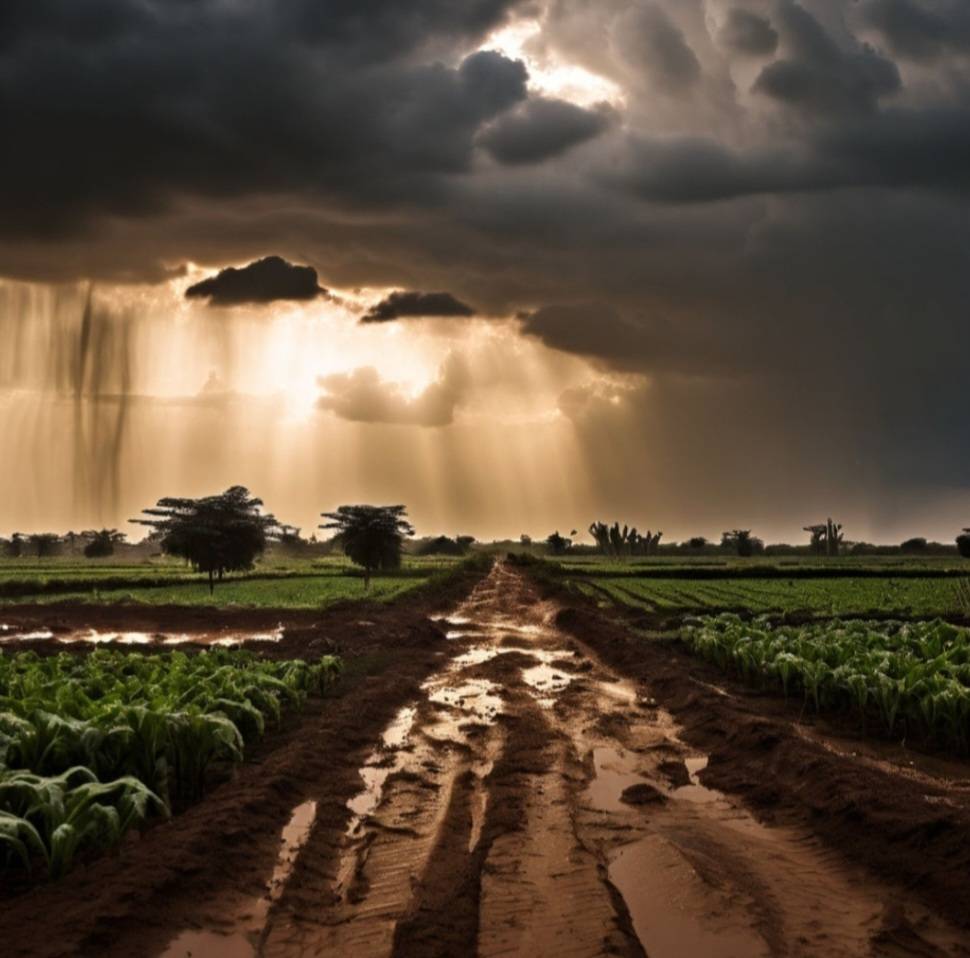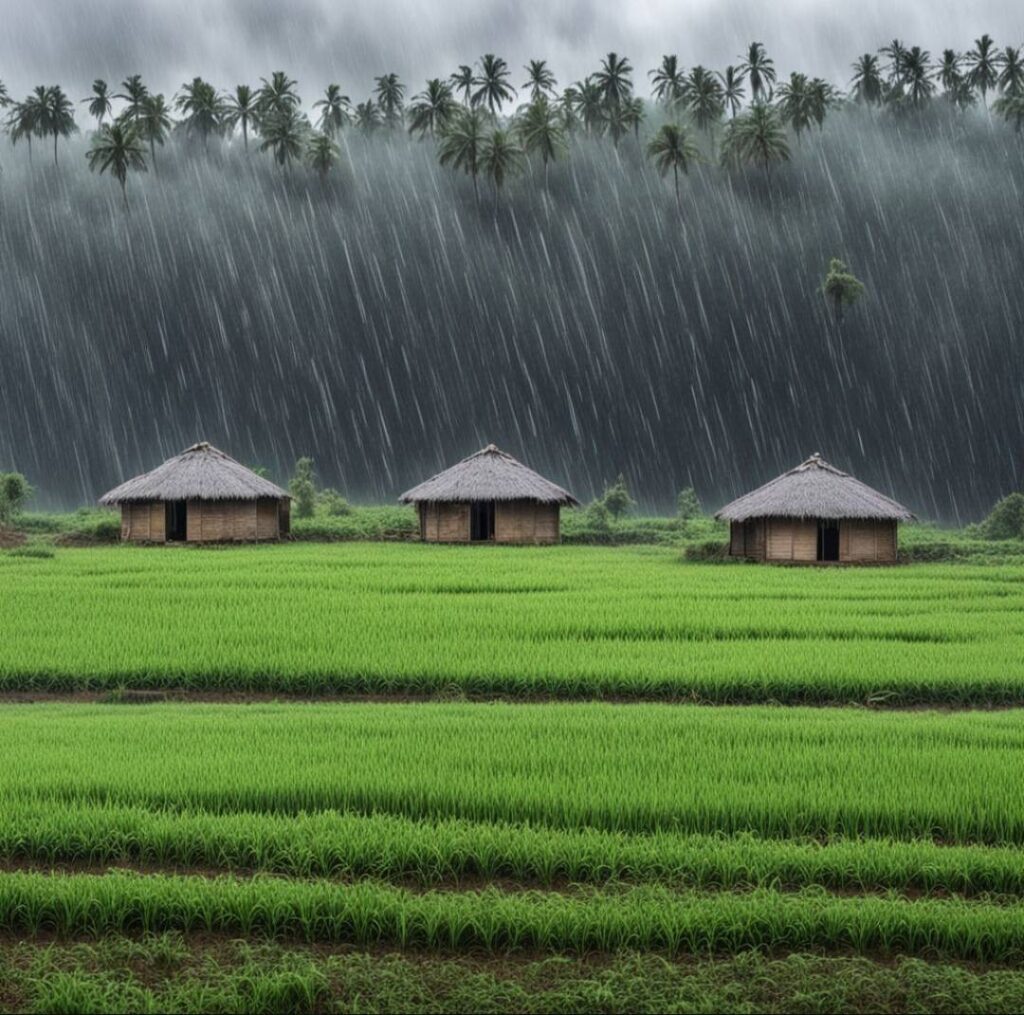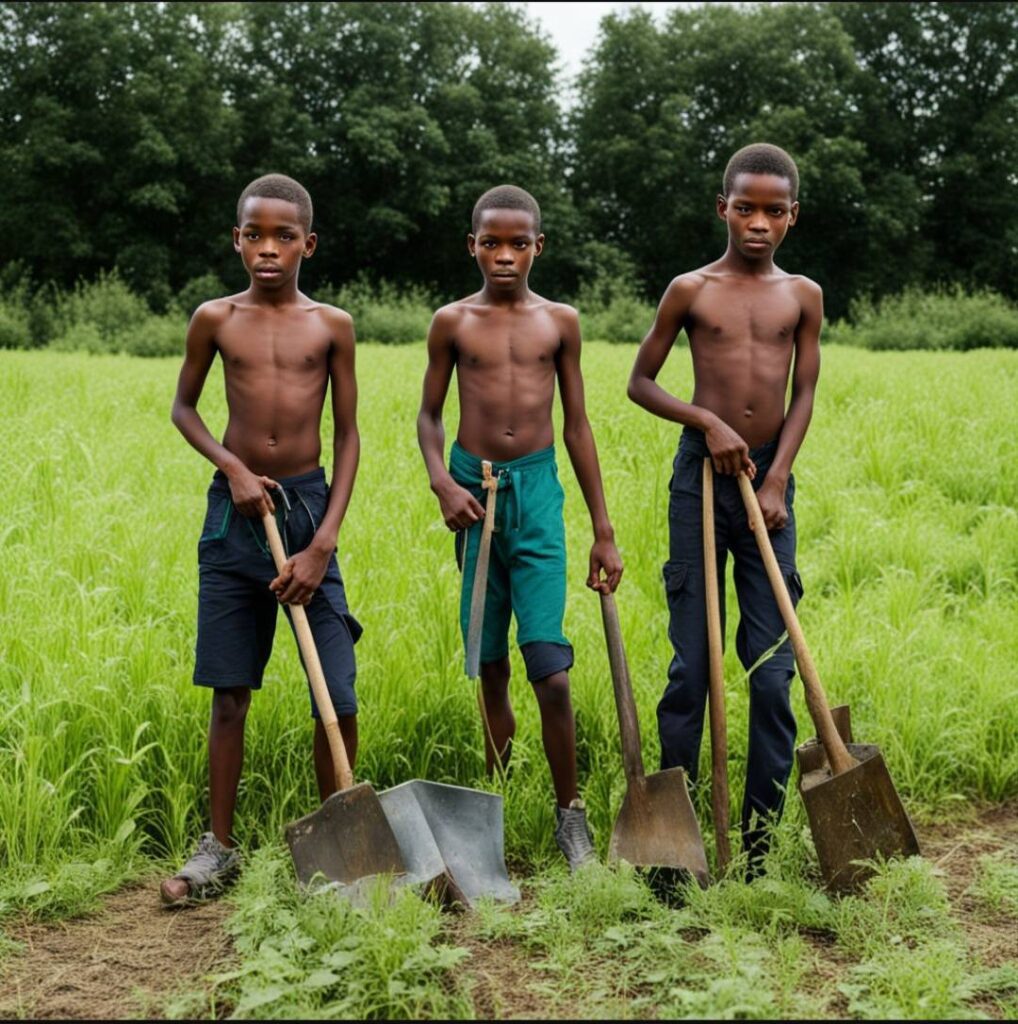A journalist & academic with a Ph.D. in applied linguistics. He works in various fields; teaching, translation, editing, writing for digital newspapers, and human rights defense.
It is part of Jazira, the agricultural area which once more has become the center of Sudan. The British developed it as the engine for the economy, now it has been occupied by RSF which is accused by looting and human rights violations there. It has always been an area of richness as well as poverty. Combo, a town with farmers from the faraway Darfur, is such a place of exploitation in Jazira. As the war is creeping east, Al-Gadarif, one of Sudan’s remaining agriculturally productive regions, has also known for child labour.

This is an AI picture
Flashbacks of childhood and reflection on the laborer children in the farms of Al-Gadarif
The sky was cloudy, the streets were muddy, and it started raining very heavily in the midst of vast agricultural farms in South Eastern part of Sudanese city of Al-Gadarif. Three skinny boys, bare feet continued to traverse the pathway through a bush. They didn’t take shelter under the trees as they were warned by their fathers that lightning strikes those who seek shelter beneath the trees. Their muscles strained because of the ground which seemed to want to suck in and hindering their walk towards Combo.
For them, Combo had to be reached and it was like walking in the desert and finding an oasis. It is a place where the agricultural project is managed, typically built in huts in the midst of the vast farm owned by a rich man. It provided not only a space for preparing a meal, but also a shelter to sleep after a long day of hard work among other senior Jungo; seasonal laborers who hustle in the farms. They all come from villages surrounding the agricultural farms.
Abdo and Bakri, both 12-year-old boys, became tired as they journeyed alongside Ken, one year older than them. Ken was guiding them. They walked 100 kilometers from their home village, Tamra. Ken took the heavy grocery bags from the backs of his mates. And within the bags, nothing but only dried fish, corn flour, and a few clothes. And when they had paid farewell to their families, their mothers put mosquito nets in their bags. One type of food, two meals a day; a breakfast and dinner sufficed to ensure they were not hungry. In the evening, a mosquito net had to be erected against the mosquitoes that plagued Combo.

This is an AI picture
Children as young as Bakri, Ken and Abdo force themselves to work during the autumn, which coincides with their school holidays. The children’s families own small farms and they are productive. But the big farms owned by a handful wealthy empowered and backed by the government. During the harvest for the village farmers, market prices go lower. The government and the rich men buy and monopoly the market. Additionally the farmers are burdened with numerous taxes on their products. The families cannot afford their children’s school fees, making child labor a necessity.
Ken and his mates were embarking on their journey, he sought to uplift their spirits by sharing a poem in Masalit, the indigenous language of the community to which the children belonged and were fluent in. The poem addresses the importance of enduring the hardship, conveying the message through the following lines:
Let’s keep walking you and I,
Despite the tears of the sky,
Upon our heads and shoulders.
Our school holiday can’t be squandered
The far standing Combo can be reached,
As steady as we walk our feet.
Our dreams; pens, pencils, books and uniforms are there,
But some walks are needed here
and hard working is waiting there.

This is an AI picture
Upon their arrival at Combo late in the evening, all Jungo were asleep. Adam, a middle-aged man and agent of the agricultural farm, awoke with a lamp in hand. He knew the boys as soon as he saw them. He was frequent to their village market for his workers’ needs. It was not uncommon for him to employ children in his farm, as he found it cheap. The boys were instructed to sleep in a hut next to his house, where an elderly Jungo was sleeping, snoring terribly while the insects of all kinds were buzzing like bees.
The children did not sleep all night. In the morning, the agent took them to a location where the fresh sesame seed plants were growing. He lined up a piece of land of 1,000 square meters for them to clean it up. With grass-cutting tools in hands, they labored for consecutive eight days. And on the ninth day, they finished their work but Abdo got sick. He was feeling cold and shivering. It seemed malaria. They received their little payment.
The season of cutting bushes for children was over. It is now up to the mothers to collect the sesame seeds that were planted. Children who are unwilling to work on the farms often end up quitting school. Over time, those who left school may become seasonal laborers in the same agricultural fields where they refused to work during their youth. The state of Al-Gadarif is known as the breadbasket of Sudan due to the hard work of the seasonal farmers including children and women.

This is an AI picture

